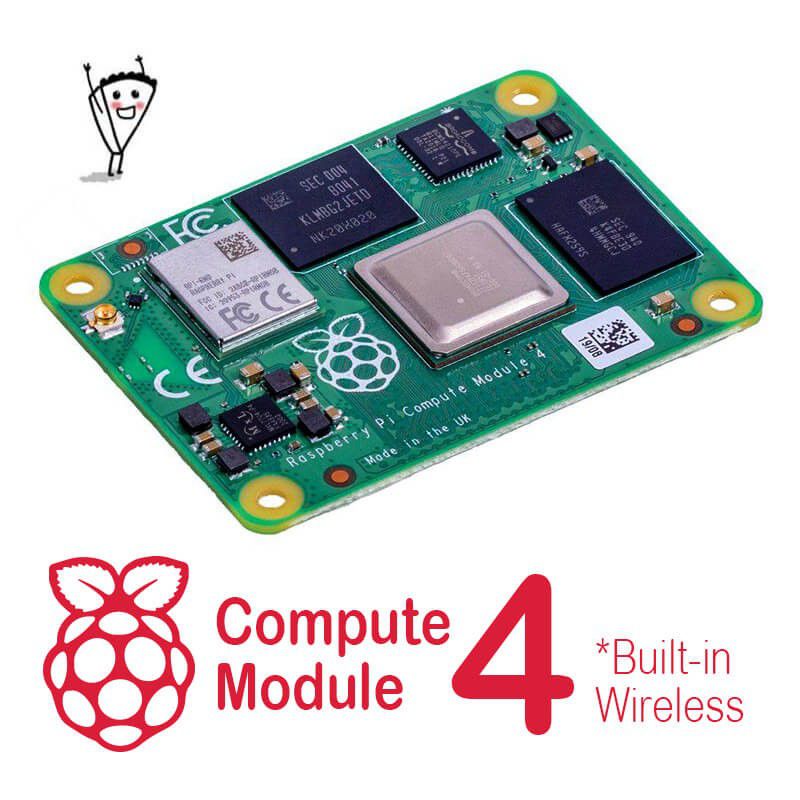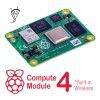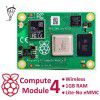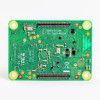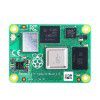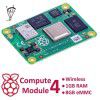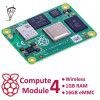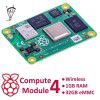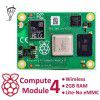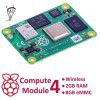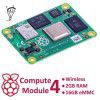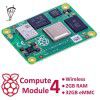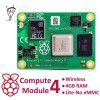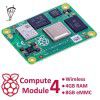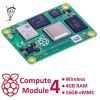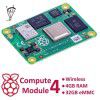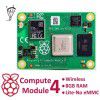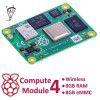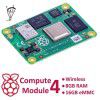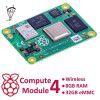Note: These are the variants of Compute Module 4 WITH built-in Wireless (WiFi and Bluetooth), please choose the RAM and eMMC size you prefer.
Note: There are another 16 variants of Compute Module 4 without Wireless, check it out here.
Note: The Compute Module is meant for industrial applications, it is NOT beginner-friendly. Please check Raspberry Pi 4 Model B for the same powerful processor and comes with easy-to-get-started features.
With the launch of Raspberry Pi 4 Model B (1GB, 2GB, 4GB) last year (2019) and the 8GB RAM version in May this year (2020), everyone has been asking for Compute Module 4. Now, the waiting is over.
And here is the discussion from the Raspberry Pi Foundation about the CM4:
And here is our introduction to the CM4, comparison to CM3+, Raspberry Pi 4B, the CM4 IO board, and also Antenna Kit:
Compute Module 4 was officially launched on 19th October 2020 with the same or better spec, and there are 32 variants of the module to choose from. This product page lists Compute Module 4 which comes WITH Wireless on it. If you like to check out the CM4 without built-in Wireless (WiFi and Bluetooth), please visit this page: Raspberry Pi CM4 without Wireless - Pick RAM and eMMC.

The Raspberry Pi Compute Module 4 (CM4) and Compute Module 4 Lite (CM4Lite) are loosely based on the Raspberry Pi 4B. The CM4 has an option for cost-sensitive applications to be supplied without the eMMC fitted; this version is called the CM4Lite. The form factor of the new CM4 and CM4L is different from previous Compute modules, which have all shared a form factor. The change is due to the addition of new interfaces; a second HDMI, PCIe, and Ethernet. The addition of these new interfaces, especially PCIe, would not have been possible while preserving the older form factor. Instead, the electrical interface of the CM4 is via two 100-pin high-density connectors. While the switch to a newer form factor has allowed a reduction in the footprint. The total footprint of the CM4, including the socket, is smaller with the new form factor design.

The back of CM4/Lite. The electrical interface of the CM4 is via two 100-pin high-density connectors at the back of the PCB.
The available variants: (with Wireless), choose your preferred model from under the "Available Options":
- 1GB RAM No eMMC = CM4 with Wireless, 1GB of RAM, No eMMC (Lite), will require microSD for the Operating System
- 1GB RAM 8GB eMMC = CM4 with Wireless, 1GB of RAM, 8GB of eMMC
- 1GB RAM 16GB eMMC = CM4 with Wireless, 1GB of RAM, 16GB of eMMC
- 1GB RAM 32GB eMMC = CM4 with Wireless, 1GB of RAM, 32GB of eMMC
- 2GB RAM No eMMC = CM4 with Wireless, 2GB of RAM, No eMMC (Lite), will require microSD for the Operating System
- 2GB RAM 8GB eMMC = CM4 with Wireless, 2GB of RAM, 8GB of eMMC
- 2GB RAM 16GB eMMC = CM4 with Wireless, 2GB of RAM, 16GB of eMMC
- 2GB RAM 32GB eMMC = CM4 with Wireless, 2GB of RAM, 32GB of eMMC
- 4GB RAM No eMMC = CM4 with Wireless, 4GB of RAM, No eMMC (Lite), will require microSD for the Operating System
- 4GB RAM 8GB eMMC = CM4 with Wireless, 4GB of RAM, 8GB of eMMC
- 4GB RAM 16GB eMMC = CM4 with Wireless, 4GB of RAM, 16GB of eMMC
- 4GB RAM 32GB eMMC = CM4 with Wireless, 4GB of RAM, 32GB of eMMC
- 8GB RAM No eMMC = CM4 with Wireless, 8GB of RAM, No eMMC (Lite), will require microSD for the Operating System
- 8GB RAM 8GB eMMC = CM4 with Wireless, 8GB of RAM, 8GB of eMMC
- 8GB RAM 16GB eMMC = CM4 with Wireless, 8GB of RAM, 16GB of eMMC
- 8GB RAM 32GB eMMC = CM4 with Wireless, 8GB of RAM, 32GB of eMMC

Here is the top view of CM4 with Wireless and onboard eMMC:

Compute Module 4 with built-in Wireless and eMMC
If you choose CM4 Lite, there is no onboard eMMC, so you will need an external microSD card to boot, do take note of that.

CM4 Lite, notice the eMMC (onboard Flash memory) is not populated
You might be worried about getting started since the connectors on CM4 are so tiny and complex. Not to worry, Raspberry Pi Foundation has also released the IO board for it: The CM4 IO Board:

Note: Check out these bundles:
Also this video and blog post by Jeff Geerling are helpful for you to flash the eMMC with the OS that you want:
Since you opted for CM4 with built-in Wireless and there is a U.FL connector for the external Antenna (software switchable to use PCB antenna or external antenna), you might want to check out this Antenna kit or Compatible dual-band Antenna for CM4 too, which supports dual-band WiFi:
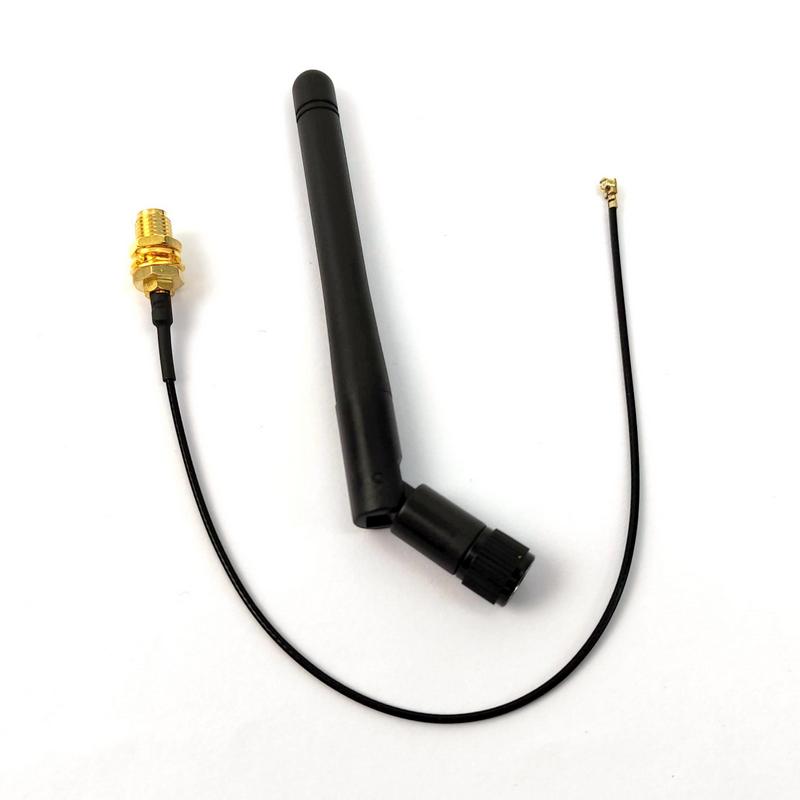
What Will You Need to Get Started?
Since there are quite significant upgrades on Compute Module 4 compared to its pre-successor (CM3 or CM3+), here are our recommendations for the existing user, maker, and engineer:
- Compute Module 4 itself, is the motherboard that is similar to Raspberry Pi 4 Model B, but in compact form factor and comes with more variations. This page for CM4 comes with onboard Wireless (Dual-band WiFi and Bluetooth), yet, you still need to choose one.
- CM4 IO Board, the IO board with all the necessary ports extended out is designed for CM4 from Raspberry Pi Foundation, including power input and proper USB port for keyboard and mouse, HDMI port for media display.
- Since this is the Compute Module 4 with onboard wireless, you might want to get an external antenna for it.
- Power Adapter for the CM4 IO Board, since the CM4 breaks the pin through two tiny 100-pin high-density connectors, powering the board should be coming from the IO board. The CM4 IO board will need a 12V DC Barrel Jack with 5.5mm*2.1mm, we recommend getting the 12V 2A power adapter:
- If you are getting the Lite version of CM4, no built-in eMMC. You will need a microSD card with NOOBS or Raspberry Pi OS to at least boot it up. You can get
- With dual full-size HDMI ports on the CM4 IO board, You can grab :
- You might need the keyboard and mouse to navigate and work on the CM4 once it boots into the Operating System.
Warranty Period: 12 months
 International
International Singapore
Singapore Malaysia
Malaysia Thailand
Thailand Vietnam
Vietnam
